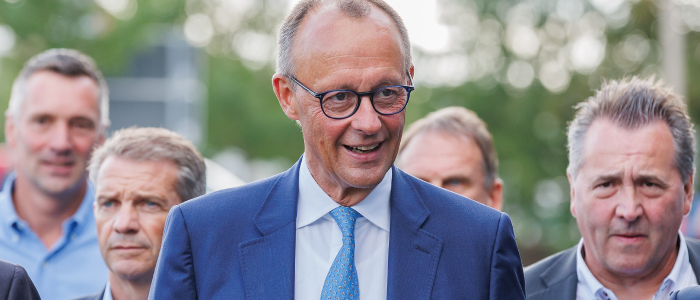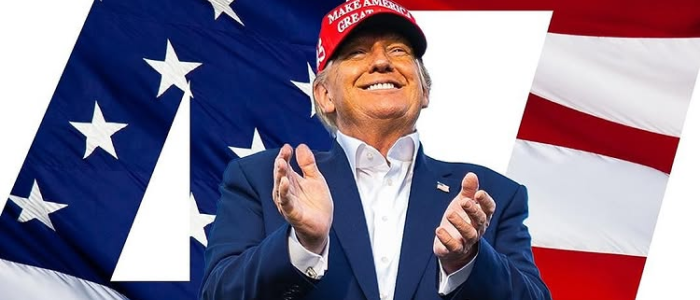A global storm is gathering – and Africa is directly in its path.Under president Donald Trump, the United States has frozen US$40 billion in USAID funding, slashing 83% of grants.European donor countries are also drastically cutting their foreign aid commitments, signaling a broader shift in priorities.
The devastating effects are already being felt across Africa, particularly in areas like healthcare, education and social services, which have long relied on external support.For decades, African governments have depended heavily on foreign aid, often at the expense of building sustainable domestic financing systems.The current wave of aid cuts underscores an uncomfortable truth: Foreign aid is inherently unreliable.

It can be paused, reduced or redirected at any time, without warning, and is often subject to political shifts in donor countries.The current financial crisis should serve as a wake-up call.African countries must reclaim control of their future by adopting bold, innovative strategies to close funding gaps and build resilient, self-sufficient health systems.
Governments must invest in homegrown financing solutions for essential public services.PRIMARY HEALTHIn the health sector, the main focus should be achieving universal health coverage through a robust, well-funded primary healthcare (PHC) system.Most donor-funded health initiatives – vaccinations, childcare, nutrition, sanitation and disease control – fall squarely within the PHC framework.
According to the World Health Organisation, up to 90% of an individual’s healthcare needs can be addressed at the PHC level. Focusing on prevention and health promotion thus remains the fastest and most cost-effective way to improve health outcomes across Africa.Preventive PHC measures such as childhood vaccinations, hypertension screenings, prenatal care and nutrition services could significantly reduce mortality rates among mothers and children under five.
Malnutrition alone contributes to nearly half of all deaths among children in this age group, underscoring the urgent need for early, community-based care.Unfortunately, more than four decades after the 1978 Alma-Ata Declaration defined PHC as the foundation of equitable healthcare, many of its goals remain unfulfilled.Consequently, African governments must develop independent health financing mechanisms to ensure long-term accessibility and accountability.
TRADITIONAL VALUESHealth insurance represents an opportunity for African countries to draw on their cultural traditions of collective responsibility and community-based support.South Africa’s Zulu people live by the principle of ubuntu – “I am because you are” – while the Igbo people of Nigeria uphold igwèbuíké (“strength in unity”).These deeply rooted values mirror the essence of health insurance: Protect individuals by pooling resources.
Rwanda offers a compelling model for strengthening PHC systems and expanding access.The country’s community-based health insurance, rolled out nationwide in 2004, now covers more than 90% of the population, making it one of Africa’s most effective health financing models.It is funded through a combination of member premiums, government contributions, international donors and other mechanisms.
It is also supported by roughly 59 000 community health workers, who serve as vital links between households and formal services.Over the past two decades, the programme has reduced financial barriers and decentralised service delivery, bringing healthcare to the communities that need it most.A ‘SWEET’ SOLUTIONThe need for universal coverage in Africa is particularly urgent as the continent faces a surge in noncommunicable diseases (NCDs), including hypertension, heart disease, diabetes and cancer.
Collectively, NCDs – driven by unhealthy diets, sedentary lifestyles and excessive alcohol and sugar consumption – claim 41 million lives annually, with 32 million deaths occurring in low- and middle-income countries.As foreign aid shrinks, African leaders must adopt bold policies that encourage healthier lifestyles and boost domestic revenue.One such solution is taxation.
As the WHO’s Sugar Tax Report shows, taxing sugary beverages reduces consumption and lowers the risk of obesity and diabetes.Experts at the recent Global NCD Alliance Forum underscored the need for stronger excise taxes across Africa to curb the growing NCD epidemic and generate sustainable revenue streams for public-health investments.In South Africa, a 2018 sugar tax led to a 51% reduction in purchases of sugary drinks, 52% reduction in calories and 29% reduction in the volume of beverages bought per person per day.
‘BRAIN GAIN’ BENEFITSDiaspora remittances represent a promising and sustainable source of funding.While talent continues to leave Africa, remittances also create a powerful ‘brain gain’, delivering a stable flow of funds to the continent.In 2024, remittances to Africa exceeded US$100 billion, outpacing foreign aid.
Globally, remittances reached US$590 billion in 2020, far surpassing official development assistance, which was US$180 billion, and philanthropic outflows of US$70 billion.If just 1% of every remittance dollar had been allocated to health insurance, the US$100 billion in remittances sent by the African diaspora in 2024 could have generated US$1 billion for healthcare.But to unlock remittances’ full potential, African governments must improve governance, strengthen accountability and foster trust with diaspora communities.
Of course, Africa is not a monolith. Solutions must be tailored to each country’s unique context, complementing broader efforts to boost domestic resource mobilisation.What is clear, however, is that lasting independence depends on financial self-reliance.
For African countries to control their financial futures, they must ensure they can fund essential services like healthcare without relying on external support.– Ifeanyi Nsofor, a public health physician and behavioural science researcher, serves on the Global Fellows Advisory Board at the Atlantic Institute.– Copyright: Project Syndicate, 2025The post How Should Africa Respond to Foreign Aid Cuts? appeared first on The Namibian.
.
Politics

How Should Africa Respond to Foreign Aid Cuts?

A global storm is gathering – and Africa is directly in its path. Under president Donald Trump, the United States has frozen US$40 billion in USAID funding, slashing 83% of grants. European donor countries are also drastically cutting their foreign aid commitments, signaling a broader shift in priorities. The devastating effects are already being felt [...]The post How Should Africa Respond to Foreign Aid Cuts? appeared first on The Namibian.















